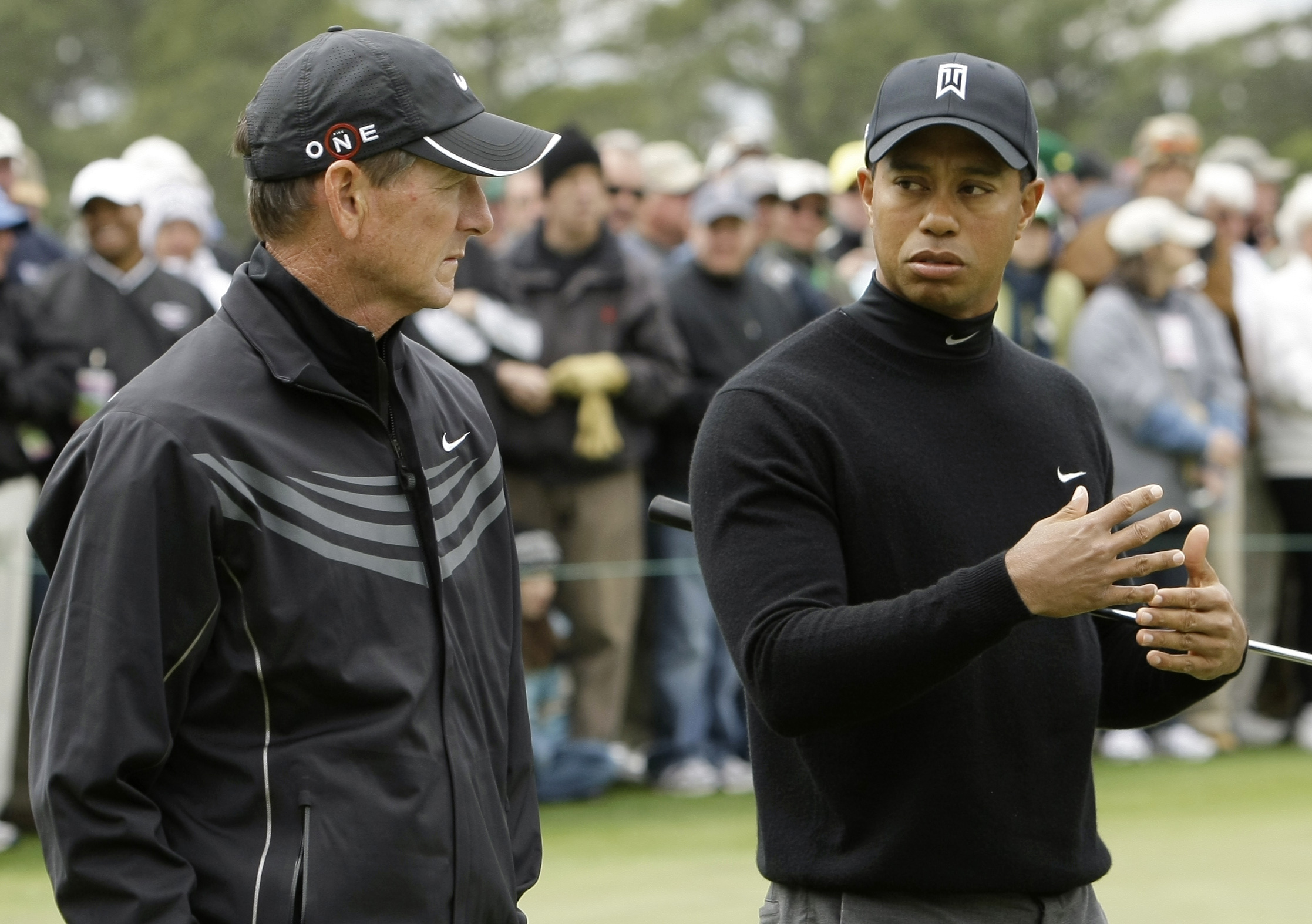As Tiger Woods’ former coach during his peak years of dominance, Hank Haney brings a unique perspective on Tiger’s swing and latest comeback.
Haney and Woods split in 2010, and ever since writing “The Big Miss,” he’s been persona non grata with the Tiger camp. But that doesn’t mean he doesn’t still have a great eye for Tiger’s swing. In fact, it may be one of the reasons he is so unabashedly honest about Tiger’s game. (Others might argue his takes are sour grapes but I appreciate his candor.) Haney didn’t answer or return a call on Sunday after Tiger finished playing 72 holes in the Bahamas, his first competitive rounds since the Masters in April. But Haney did review Tiger’s performance this week on his podcast, noting that the swing looked good to him and he was impressed with his length off the tee and that he didn’t “look to be in excruciating pain like he was last year.”
Haney, however, isn’t rushing to hand Tiger a 16th major after he finished 18th out of 20 players in the Hero World Challenge. Haney said that when he was working with Tiger, Albany, the host course of the tournament, would have been a par 67 not a par 72 as it is on the scorecard for Tiger, who shot even-par 288, 20 strokes behind winner Scottie Scheffler.

Hank Haney first started working with Tiger Woods in March 2004.
“Back in the day, and I understand back in the day is a long time ago, but back in the day if there was a tournament that Tiger Woods signed up for that had five par 5s, I already would have penciled it in as a victory,” Haney said on The Hank Haney Podcast. “He said, ‘I didn’t take care of the par 5s like I was supposed to, I would’ve been maybe double digits.’ Double Digits? That would’ve lost by 10. I understand he hasn’t played and he’s rusty and everything else everyone wants to say, but back in the day I could’ve shoulda-coulda-woulda for every tournament Tiger ever played and he would’ve won.
“When you lose by 20, there’s no shoulda-coulda-woulda. You are so far – that’s five shots per round – you are so far out of contention.”
Haney wondered how much Tiger would be able to practice, and would it be enough for him to be competitive playing such a limited schedule.
“He’s got get some semblance of a game because no matter how much he wants to tell you he can hit all the shots, and he can do this and he can do that, you’ve got to do it and you’ve got to show it and that’s the thing that’s missing there,” Haney said. “Can you play once a month and climb up a mountain? Can you practice enough if you’re Tiger to climb up the mountain (again)? The advantage he has is that if he can start climbing just a little bit up the mountain, next thing you know he can start flying up the mountain because he has all this knowledge stored up in that brain of his that tells him what to do and he can do it. It’s just can he get some momentum going up that mountain?”
Tiger said he was pleased that he completed a tournament without a setback and despite being sore said he recovered better than he expected. He was encouraged with how his body responded after a seven-month layoff and another surgery to fuse the subtalar joint of his right ankle.
“How long will he deem that a success if he’s not competitive?” Haney asked rhetorically. “The answer to that is who knows, we’ll see.”

